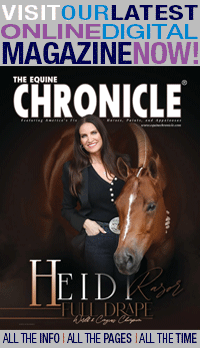
Your horse’s well-being is riding on your tires. Do you know if those tires are safe? If not, here is what you need to know:
Continue reading …First Equine Guests Arrive at The ARK at JFK, World’s First Animal Reception Airport Terminal
September 7, 2017 Comments Off on First Equine Guests Arrive at The ARK at JFK, World’s First Animal Reception Airport Terminal
The ARK at JFK is located at New York’s JFK on 14.4 acres and is opening up in three phases in 2017. As part of Phase 1, The ARK Pet Oasis and Equine Export Center opened January 2, 2017 and have welcomed horses, dogs, cats, rabbits, turtles, baby goats, a pot-bellied pig and many other animals. Phase 2 includes the Equine Import Quarantine (now open) and The ARK Aviary Quarantine, which is complete and awaiting final approval of the USDA.
Continue reading …Your Hurricane Preparedness Plan Should Include Pets, Livestock!
September 6, 2017 Comments Off on Your Hurricane Preparedness Plan Should Include Pets, Livestock!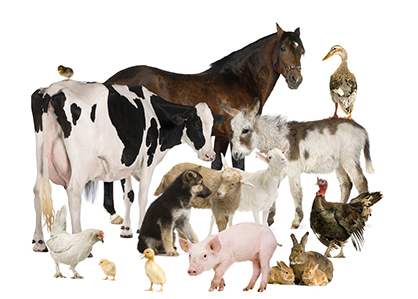
– Cover and secure all water, food, and medical supplies for poultry and livestock.
– Pump and collect adequate supplies of drinking water in case of electrical failures.
– Top off all gasoline, propane, and other fuel tanks.
– Check operations of all portable generators.

While some advocate extreme calorie restriction, especially when trying to get weight off a horse, this really isn’t necessary. A grass hay with under 10% sugar (ESC) and starch combined, protein 9+% can usually be fed at a rate of 1.5% of current body weight or 2% of ideal body weight, whichever is larger, to achieve the desired weight.
Continue reading …Does Feed Taste Stimulate Cribbing?
September 5, 2017 Comments Off on Does Feed Taste Stimulate Cribbing?
Concentrate feeds have been linked to cribbing, but it is not known why, or which of their characteristics might be responsible. What is it about concentrate feed that stimulates cribbing?
Continue reading …Know What You Grow: Clover Toxicity and Horses
September 4, 2017 Comments Off on Know What You Grow: Clover Toxicity and Horses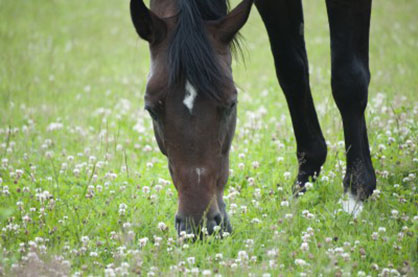
Slaframine is known to stimulate the salivary glands of a horse and lead to an excessive amount of drooling, or “the slobbers.” While it is a nuisance and rather unpleasant, the condition is not life threatening.
Continue reading …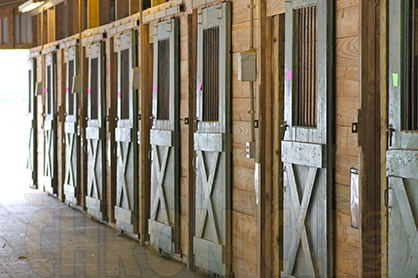
The Habronema larvae are passed in horse manure, when flies feed on the manure they actually take in the microscopic larvae. These larvae develop and when the flies feed on a horse’s wound or around the eyes, lips or other areas of the horse that are moist the larvae moves to the mouth parts of the fly then they get into the small wound that the fly makes as it feeds on the horse and burrow in to the tissue of the horse.
Continue reading …Quick Tip – What You Need to Know: Equine Leg Bandaging
August 28, 2017 Comments Off on Quick Tip – What You Need to Know: Equine Leg Bandaging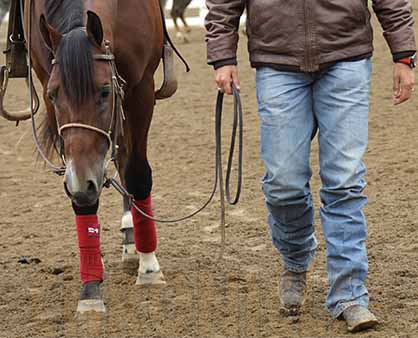
– Overlap layers of bandage by 50 percent to avoid having edges of the wrap material dig into the leg.
– Ensure the bandage is smooth against the horse’s leg to avoid uneven pressure.
– Avoid incorporating frayed bits of padding that contain wrinkles or bunches. These can cause pressure points under a bandage.
Strangles: How to Protect Your Horse
August 24, 2017 Comments Off on Strangles: How to Protect Your Horse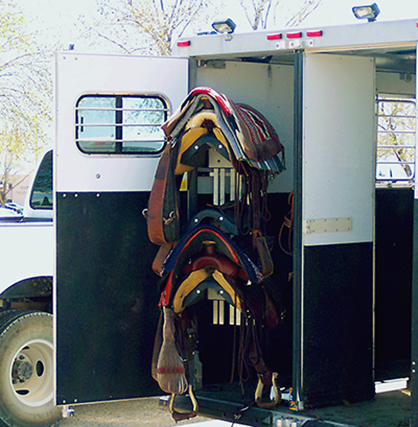
“With strangles, about 10 percent of horses don’t fully recover from the disease and can then become persistent carriers.2 Unfortunately, persistent carrier horses don’t show the outward clinical signs that sick horses do.”
Continue reading …UC Davis Researchers Tackle the Mysterious Coronavirus
August 24, 2017 Comments Off on UC Davis Researchers Tackle the Mysterious Coronavirus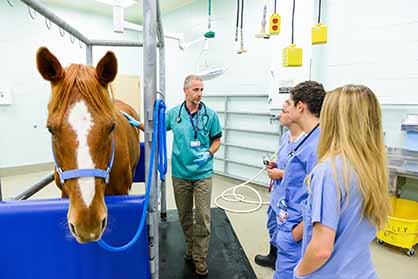
The origin of ECoV still remains a mystery – some suspect it may have developed from bovine coronavirus and spread across species. What is known about the spread of ECoV among horses is that respiratory shedding of the disease is unlikely.
Continue reading …